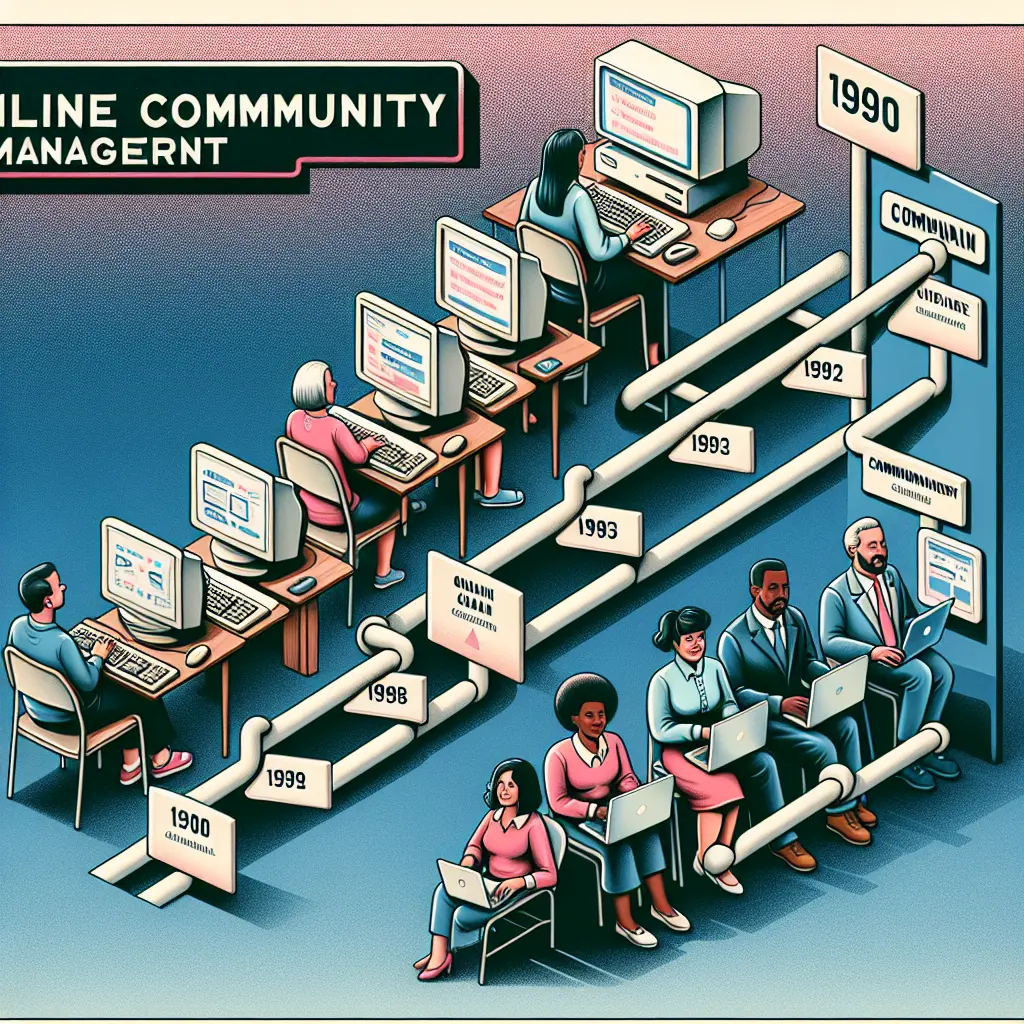
Exploring the Evolution of Online Community Management
In the ever-evolving digital landscape, online community management has become a cornerstone for businesses and organizations striving to foster meaningful connections. This evolution reflects a broader shift in how we engage with audiences, leveraging technology to build, nurture, and grow virtual communities. As the digital community management arena expands, so does the need for skilled community managers who can navigate the complexities of online engagement strategies.
Initially, community management focused on moderating forums and facilitating basic interactions. However, as digital platforms have proliferated, the role has transformed into a multifaceted position requiring an adept understanding of social media community roles and digital engagement strategies. The modern community manager must master a diverse set of skills, from crafting compelling content to implementing innovative strategies that resonate with a global audience.
The Transition from Moderation to Digital Engagement
The digital landscape has changed dramatically, leading to a broader evolution of community roles. Modern community managers must now navigate complex social media roles and implement engagement strategies that resonate with diverse audiences globally. This evolution is not just about technological advancements but also reflects the heightened expectations of community members who demand personalized and engaging experiences.
A stark illustration of the challenges faced by community managers is evident in Instagram's handling of hate speech, where 93% of violent comments directed at female politicians were reportedly left unchecked. This underscores the need for robust engagement roles that prioritize user safety and inclusivity.
Tackling Online Abuse and Misinformation
As digital platforms grow, harmful practices like doxing have become more prevalent. An article titled "Inside the Dark World of Doxing for Profit" reveals how this practice has intensified. Community managers must be vigilant, employing strategies that protect users from such threats while fostering a sense of security within virtual communities.
The influence of online personalities on public discourse cannot be overlooked. A recent analysis demonstrates how influencers like Elon Musk and Logan Paul shape US elections through their vast followings, highlighting the importance of leadership in guiding conversations and ensuring accurate information dissemination.
The Rise of Niche Communities and Platforms
With the expansion of digital spaces, niche communities tailored to specific interests have risen. Platforms like those discussed in "8 photo sites that let you showcase and discuss your work" cater to photography enthusiasts. These platforms illustrate how community managers must adapt their strategies to deeply engage users, focusing on content that resonates with specific interests.
The case of Belfast nightclub Lux, which removed online videos after backlash, further underscores the need for responsiveness and adaptability to public sentiment.
Adapting to Global Challenges
Community managers must navigate geopolitical challenges, as shown by Turkey's block on Roblox over child exploitation concerns. Such situations require culturally sensitive growth strategies that comply with varying international regulations.
Furthermore, the issue of scams, such as caravan scammers conning holidaymakers, necessitates vigilance in protecting users from fraud. Building trust involves implementing rigorous verification processes and fostering transparent communication channels.
The Future of Community Management Roles
As we look toward the future, staying abreast of trends is crucial for success in digital spaces. The rise of fake weight-loss jabs amid medication shortages exemplifies ongoing misinformation challenges. This demands proactive roles to educate and inform communities accurately.
Community managers must continuously evolve their skill sets, embracing new technologies and methodologies. Effective management demands expertise in crafting compelling content, analyzing user data for insights, and implementing innovative strategies that align with organizational goals.
Conclusion: Navigating the Dynamic Landscape of Community Management
The evolution of community management roles is shaped by technological advances and shifting societal demands. As digital spaces expand, community managers face challenges and opportunities that redefine their roles. Key takeaways include:
- Broader Responsibilities: Transitioning from simple moderation to comprehensive engagement requires advanced strategies tailored to diverse audiences.
- Addressing Online Threats: Combatting hate speech, misinformation, and doxing with robust security measures is crucial.
- Influence of Social Media: Influencers shape public discourse, highlighting the need for leadership ensuring accurate information dissemination.
- Niche Communities: Specialized platforms require adapting strategies to resonate with specific user interests.
- Global Sensitivity: Navigating international regulations is essential for growth and user safety.
Looking to the future, adaptability will be paramount for community managers. Embracing new technologies, refining skills, and fostering genuine connections are crucial for thriving in this ever-evolving landscape.
Reflect on your experiences in online community management. How have you navigated these changes, and what challenges have you encountered? Share your thoughts and join the conversation as we explore this dynamic field together. By embracing change, we can craft resilient communities that thrive amidst constant transformation.
Warm regards,
Lila Montgomery